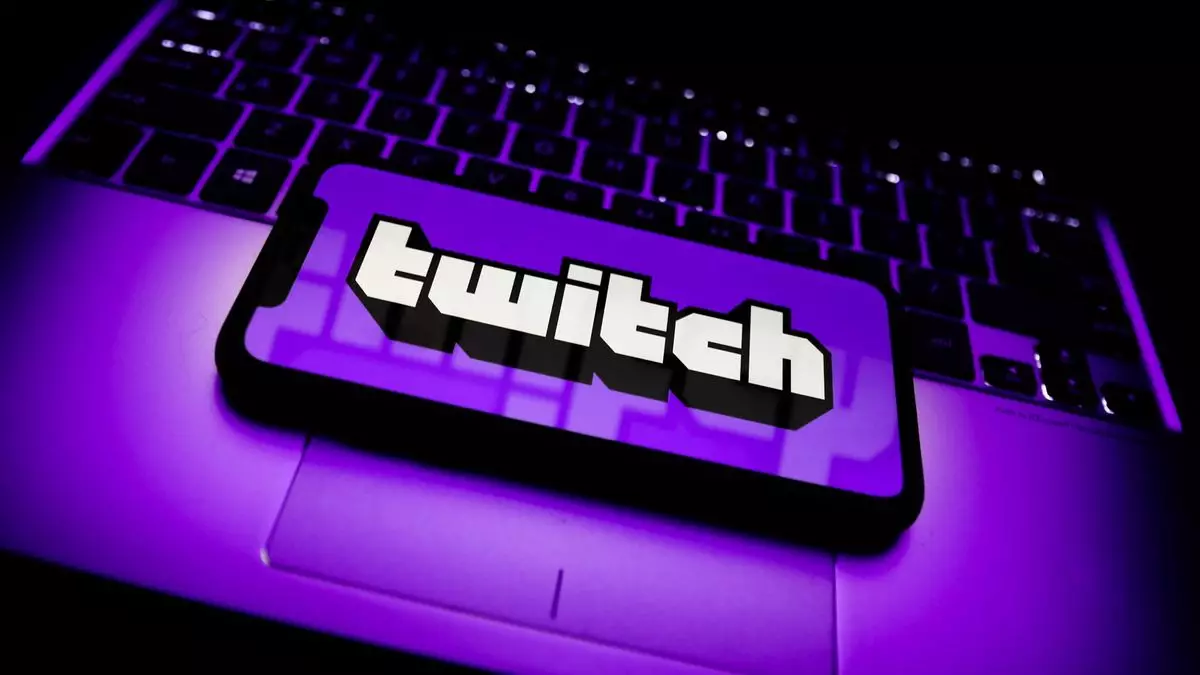In recent developments, Twitch, the popular streaming platform, has faced scrutiny and pressure regarding its handling of content related to politics and sensitive social issues. After implementing a contentious content classification label (CCL) for streams addressing these themes, the company has made modifications in response to backlash from various community members. This article will explore the implications of Twitch’s revised policy on lived experiences and the ongoing debate surrounding the categorization of sensitive content.
The initial rollout of Twitch’s content classification label was muted by controversy. Amid rising tensions regarding the representation of marginalized communities and specific incidents of hate speech against Arab streamers, Twitch leaders felt the need to impose a structure that mandated explicit labeling of streams that addressed sensitive subjects like race, religion, or sexuality. This came on the heels of several high-profile incidents, including a ban of the popular streamer Zack “Asmongold” Hoyt, which illuminated the platform’s vulnerabilities concerning hate speech and discrimination.
However, the swift implementation of this policy was met with pushback, particularly from members of the LGBTQ+ community who expressed feelings of being disproportionately targeted by a guideline that classified their very existence as “political.” Thus, the balance Twitch sought to achieve in protecting vulnerable voices was seen by many as a hindrance to their freedom of self-expression.
In a bid to address the criticisms, Twitch announced an updated version of its classification guidelines. Notably, the company clarified that streamers discussing their “lived experiences” wouldn’t be required to label their content with the contentious CCL if these narratives were not the primary focus of their streams. This revision sought to alleviate fears regarding the impact of the labeling system on ad revenue and viewer engagement, as advertisers often steer clear of content that carries a warning label.
Despite the adjustments, many community members remain skeptical about the effectiveness of the new guidelines. Critics argue that the modifications do not fundamentally change the original intent of the policy and merely offer a semantic shift that does little to protect marginalized streamers from scrutiny and potential backlash.
The Central Issue of Polarization
The crux of the ongoing debate lies in the subjective interpretation of what constitutes “polarizing or inflammatory content.” The updated guidelines have sparked questions about who gets to decide what these terms mean. For instance, if a trans streamer discusses their struggle for rights in a society that often marginalizes them, will this be perceived as a political statement? Or will it be evaluated based on the personal nature of their experience?
This ambiguity poses significant risks, as the moderation system may inadvertently empower those with harmful intent, allowing bigoted viewers to weaponize reporting tools against streamers advocating for their rights. The political landscape within the Twitch community—and by extension, the platform—can easily morph into an environment where the subjective labeling of content becomes a tool for silencing marginalized voices.
Community Response and the Call for Change
The reaction to Twitch’s evolving policies has been intense, with the platform’s UserVoice feedback forum demonstrating a clear demand for reform. A previous post advocating for the removal of the “sensitive social issues” bullet point garnered over 38,000 votes, signaling a collective desire for change among users. In response, Twitch has chosen to clarify its guidelines rather than eliminate the problematic aspects, igniting further frustration within the community.
Speakers within the community continue to raise vital concerns regarding how the reclassification can open doors for more significant discrimination. Many view the policy as problematic, where the mere act of existing as part of an underrepresented group can be framed as politically charged. When personal narratives intersect with political discourse, it becomes increasingly challenging to navigate the fine line between advocacy and activism.
The Path Forward: Will Twitch Adapt?
As Twitch grapples with these complex issues, it stands at a crossroads. The platform’s initial decision to label LGBTQ+ rights as political illustrates a misunderstanding of the intersection between identity and personal experience. To genuinely combat hate speech and establish a supportive environment, Twitch must transform its policies to protect all streamers, especially those from marginalized backgrounds, rather than merely offering bureaucratic clarifications.
In light of current events, Twitch faces mounting pressure to reconsider its stance on content classification. The potential for evolving social climates indicates that outdated policies can lead to significant backlash, making it essential for platforms to adapt continually. As conversations around discrimination and inclusivity continue to unfold, Twitch’s journey may be a barometer for how effectively online communities can adapt to support diversity in a landscape often marred by division.

